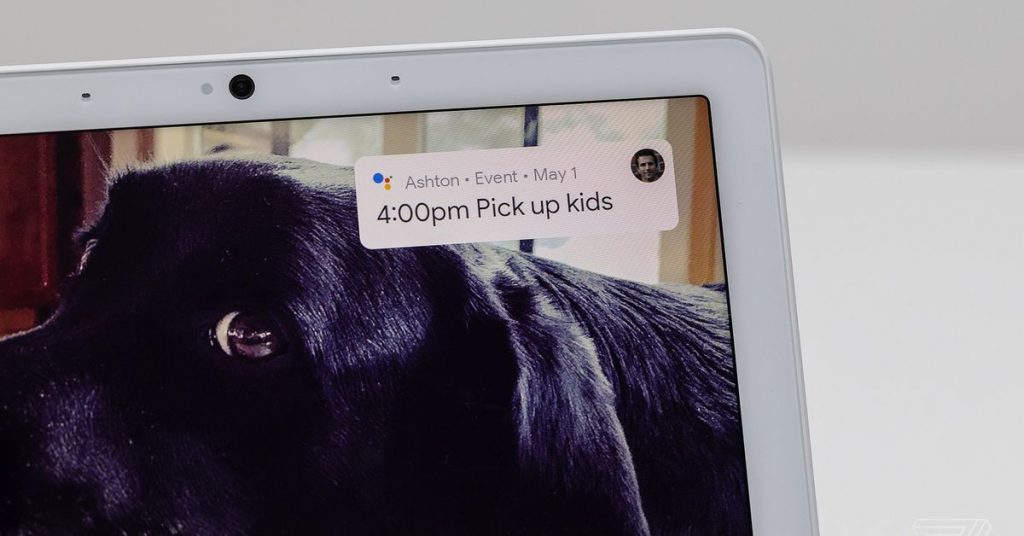Read Google’s new Nest privacy promise and tell me if you’re swayed
Google wants to be inside your home. It wants to sell you cameras, alarm systems, and voice assistants to make your life — and maybe its targeted advertising business — that much easier. But there’s a problem. People don’t necessarily trust big tech companies or their camera-equipped smart displays right now.
And while Google may not have had a Cambridge Analytica-level scandal on its hands, a couple recent incidents with its Nest division could have given buyers pause: a string of digital break-ins where Nest cameras let strangers deliver fake nuclear bomb threats and spy on babies over the internet (not exaggerating), and the revelation that the Nest Secure alarm system had a secret microphone that buyers never knew about.
So today, as Google announced that it’s going to sell a device that’s not all that different from the Facebook Portal, whose most every review wondered whether you should really invite a Facebook camera into your home, Google also decided to publicly take ownership for privacy going forward.
As we discovered in our interview with Google Nest leader Richi Chandra, Google has created a set of plain-English privacy commitments. And while Google didn’t actually share them during today’s Google I/O keynote, they’re now available for you to read on the web.
Here’s the high-level overview:
We’ll explain our sensors and how they work. The technical specifications for our connected home devices will list all audio, video, and environmental and activity sensors—whether enabled or not. And you can find the types of data these sensors collect and how that data is used in various features in our dedicated help center page.
We’ll explain how your video footage, audio recordings, and home environment sensor readings are used to offer helpful features and services, and our commitment for how we’ll keep this data separate from advertising and ad personalization.
We’ll explain how you can control and manage your data, such as providing you with the ability to access, review, and delete audio and video stored with your Google Account at any time.
But the full document gets way more specific than that. And remarkably, a number of the promises aren’t the typical wishy-washy legalese you might expect. Some are totally unambiguous. Some of them go against the grain, like how Nest won’t let you turn off the recording light on your camera anymore.
“Your home is a special place. It’s where you get to decide who you invite in. It‘s the place for sharing family recipes and watching babies take first steps. You want to trust the things you bring into your home. And we’re committed to earning that trust,” Google says.
I’ve got a real, genuine question for you, particularly if you wind up reading through the whole thing. Does this set your mind at ease? Are you any more willing or interested in placing a Google-branded camera in your home?
Personally, I’m of two minds. Part of me is impressed by the plain English, and by Google’s willingness to sacrifice the public relations air gap by adding its own name to the Nest division. (It’s Google Nest now.) I already have cameras in my home that I don’t necessarily trust, or that don’t work as well as I like, and I might be in the market for new ones.
But part of me worries that it’s just a shrewd marketing campaign, a way to sweep previous concerns under the rug, and that Google could change its mind and its policies at any time.
You can read Google Nest’s full privacy promise here.
You may be interested

You can easily disassemble this repairable smartwatch using just a Phillips screwdriver
admin - Nov 22, 2024[ad_1] The Spectra is a new smartwatch designed from the ground up to be hackable and easy to repair. It…

Ed Sheeran 'helped Ipswich sign player' before appearing with Taylor Swift
admin - Nov 22, 2024[ad_1] Ed Sheeran helped Ipswich Town to sign a player over the summer just before getting on stage with Taylor…

Strava closes the gates to sharing fitness data with other apps
admin - Nov 20, 2024[ad_1] We wanted to provide some additional context around the changes to our API Agreement and the impact for our…
Leave a Comment
You must be logged in to post a comment.























